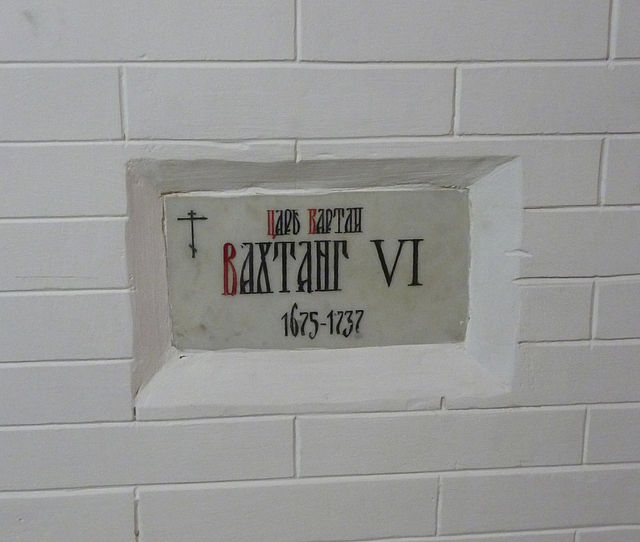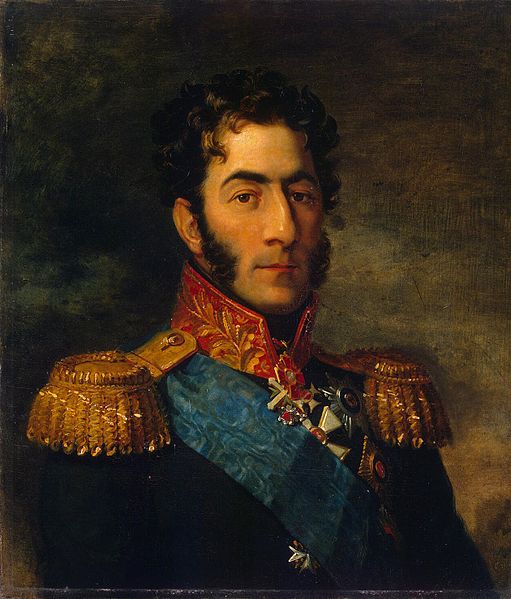Vakhtang VI, also known as Vakhtang the Scholar, Vakhtang the Lawgiver and Ḥosaynqolī Khan, was a Georgian monarch (mepe) of the royal Bagrationi dynasty. He ruled the East Georgian Kingdom of Kartli as a vassal of Safavid Persia from 1716 to 1724. One of the most important and extraordinary statesman of early 18th-century Georgia, he is known as a notable legislator, scholar, critic, translator and poet. His reign was eventually terminated by the Ottoman invasion following the disintegration of Safavid Persia, which forced Vakhtang into exile in the Russian Empire. Vakhtang was unable to get the tsar's support for his kingdom and instead had to permanently stay with his northern neighbors for his own safety. On his way to a diplomatic mission sanctioned by Empress Anna, he fell ill and died in southern Russia in 1737, never reaching Georgia.
Vakhtang VI from kontakion, printed by Mihai Iștvanovici in 1709 in Tiflis
Book of Chemistry by Vakhtang VI. Manuscript of 1740s (copiest Prince Vakhushti). Simon Janashia Museum of Georgia
Vakhtang VI's royal banner featuring the biblical king David, a reference to a Bagratid claim of Davidic origin.
Tomb of King Vakhtang VI in Astrakhan.
The Bagrationi dynasty is a royal dynasty which reigned in Georgia from the Middle Ages until the early 19th century, being among the oldest extant Christian ruling dynasties in the world. In modern usage, the name of the dynasty is sometimes Hellenized and referred to as the Georgian Bagratids, also known in English as the Bagrations.
David III of Tao depicted on a bas-relief from the Oshki Monastery
King David IV of Georgia
Erekle II, king of the eastern Georgian kingdoms of Kakheti and Kartli-Kakheti
General Pyotr Bagration








